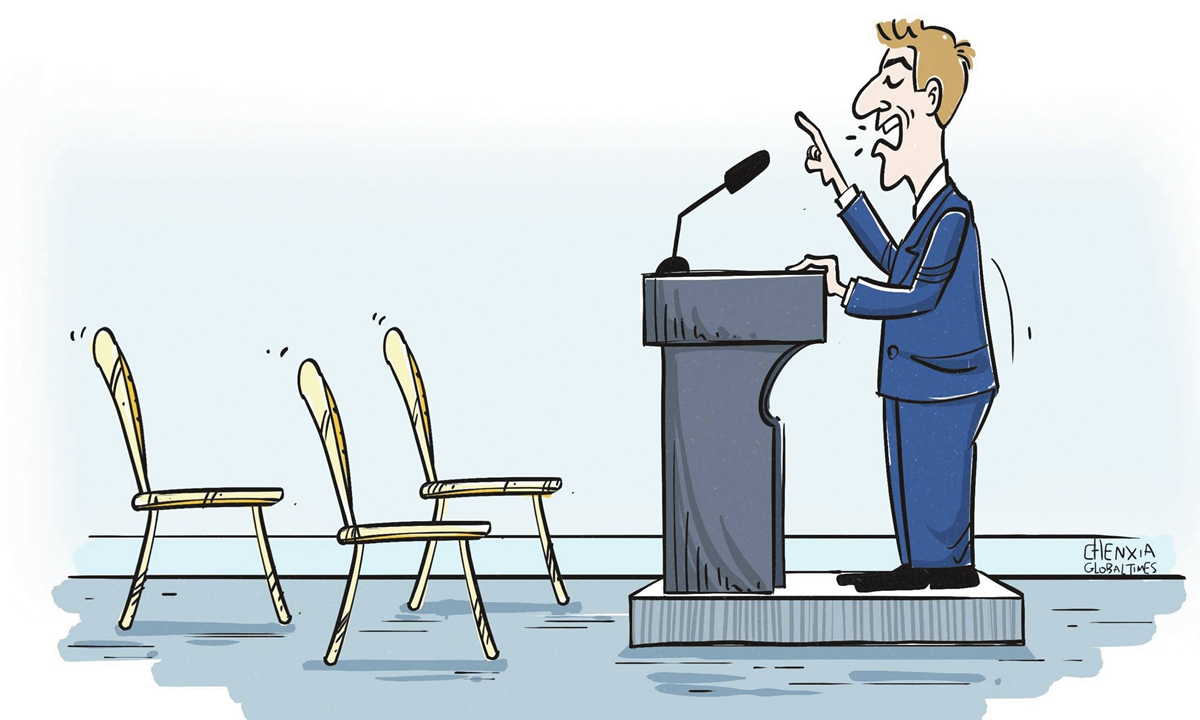“America first” is no longer a tenable business strategy in earth mineral rich Global South countries. Amid a notable dip in approval ratings and open hostilities, it has not been the best of times for the US’ exploitative agenda in Africa and, the larger Global South.
The US, as are many other Western countries, is struggling to whitewash a legacy of imperialism and colonialism, while engaging in affairs that only serve to reinforce that their interests in the Global South are self-serving.
Take for instance, alarmed by strong relations between China and Africa, a report from a Washington-based think tank advised the US to seek “more vigorous commercial diplomacy with a keen eye toward building critical minerals partnership in Africa” in April. In July 30, US Deputy Secretary of State Kurt Campbell said that Washington must do more to counter Chinese actions, “including its strategy for creating military bases and its pursuit of rare-earth minerals in Africa.”
In other words, Washington’s Africa policy needs to feign interest in the continent and its people, to catapult itself to the front of the queue for unsupervised scoops of rare earth minerals. But Africa and other regions are no longer buying into such nefarious interests neatly packaged and sold as economic policy.
It is therefore such underhandedness that has seen the US and other Western countries lose their footing in Africa and, across developing countries in Latin America, Oceania, and Asia. China has always upheld a non-interference diplomatic approach.
The US was always above such “niceties,” choosing instead to bulldoze its agenda across the Global South. Now, it is all unraveling. A number of African countries are rejecting all forms of imperialistic appropriation and oppression.
Consequently, Global South citizens are increasingly pushing back against America’s imperialism and neocolonialism agenda.
Clouds started gathering in the Sahel region of Africa and the US presence is now uncertain. America has already been forced to temporarily withdraw its troops out of Chad. Niger has suspended its military agreement with the US.
America’s imperialist appropriations are no longer welcome as they are in sharp contrast with China’s security vision and partnerships that aim to link countries, people and economies. Trade is a central piece of China’s relations in the Global South and it is largely this extension of trade and friendship that has opened the eyes of developed and developing nations.
There is therefore a growing preference for China’s mutually beneficial partnership of equals built on trust. The Global South is rising from its slumber, roused by the recognition that rich countries like the US owe their immense wealth to the unmitigated exploitation of natural resources from the Global South that dates back to the colonial era.
Rich countries drained $152 trillion from the Global South since 1960, instigating famine, mass impoverishment, genocides and dispossession in affected countries. Most earth mineral rich nations in Africa have remained largely unstable to date.
Unfolding dissatisfaction toward America’s predatory nature are only the tip of the iceberg. As of 2023, America is no longer the most influential global power in Africa. In fact, of the four global powers included in an approval survey, the US was the only one whose image did not improve across the African continent.
Meanwhile, between 2022 to 2023, China’s approval ratings in Africa rose by six percentage points. China is successfully consolidating its influence on the continent.
Throughout the postcolonial era, in world affairs, China and other nations in the Global South have stood together in solidarity.
The author is a Kenya-based journalist. opinion@globaltimes.com.cn













